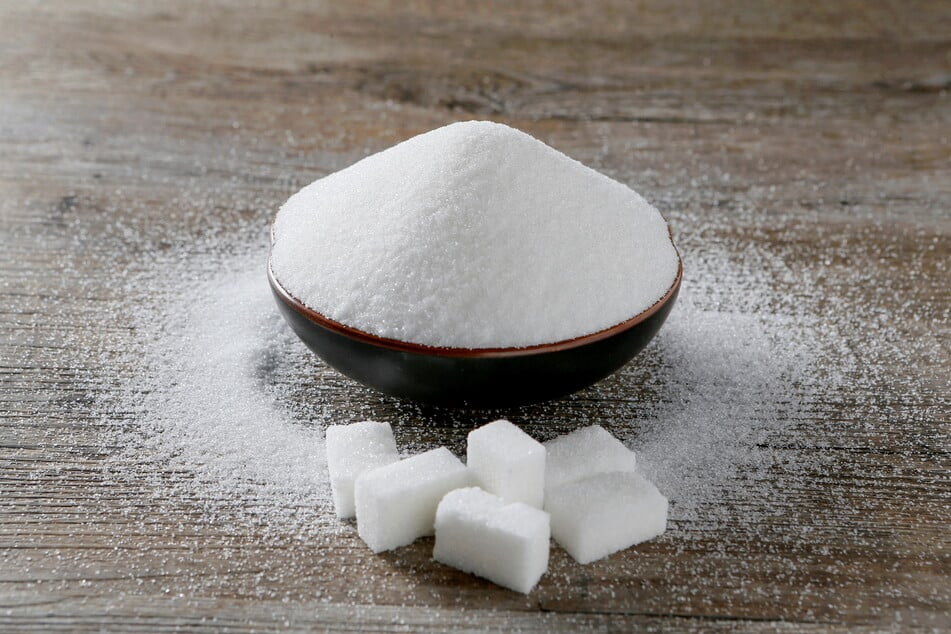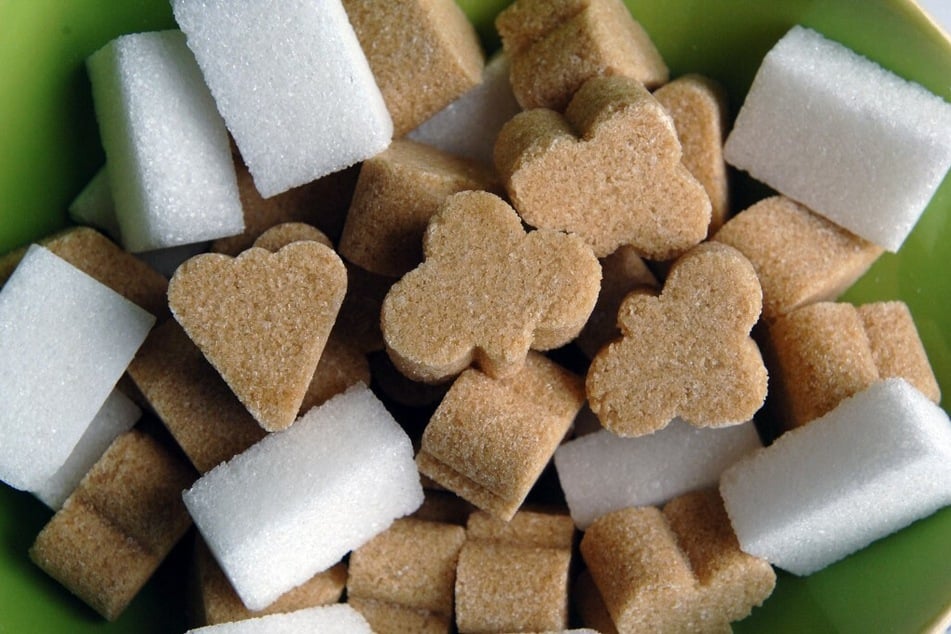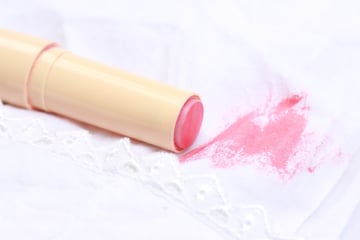See ya sugar! Tips for breaking up with the sweet stuff
A croissant for breakfast, ice-cream for dessert, and some cake with your afternoon coffee: It's not easy to get through the day without sugar. If you're thinking of cutting back, try to start slow. Here's how.

Sugar doesn't have the best of reputations, but a lot of us love it anyway. If that applies to you, it's worth considering cutting consumption for the sake of good health.
But how to kick a sugar habit?
First an important fact: "Sugar is a nutrient our bodies need," said nutritional medicine specialist Dr Antonia Stahl.
Sugar is the simplest form of carbohydrate, one of the three macronutrients in our diet, along with protein and fat, and the body's main fuel source.
Let's dive into how the sweet stuff works, and how it can be incorporated into our food intake for the better.
Sugar: How does it work?

Our digestive system breaks down carbohydrates into glucose, a monosaccharide (simple sugar), which is absorbed into the bloodstream and keeps our brain, muscles and other bodily functions running.
Sugar in general is neither "good" nor "bad," but simply an energy supplier for the body, said Stahl, adding that matters are more complicated when it comes to what's commonly understood to be sugar.
Glucose and fructose (fruit sugar), for instance, are both simple sugars. They're found in fruit and honey. Standard table sugar, also known as saccharose or sucrose, is a disaccharide (double sugar) made up of one glucose and one fructose molecule.
All of these sugars are short-chain carbohydrates, which are quicker to digest than long-chain ones. This means they cause a spike in blood sugar (glucose) and release of high levels of insulin, a hormone that allows glucose to enter cells to produce energy.
Oligosaccharides, on the other hand, are a type of carbohydrate chain made up of multiple, but relatively few (compared with polysaccharides), simple sugars. They're more difficult to digest and absorb by the body and, Stahl said, therefore tend to be healthier.
Found in vegetables and wholegrain products, for example, they don't really satisfy our sweet tooth though.
So sugar comes in many forms. Refined, or processed, sugar, which is typically added to foods and beverages to improve their taste, isn't required by the body at all, Stahl said.
The carbohydrates we consume in foods such as vegetables, fruits, and wholegrain products are fully sufficient to supply our bodies with energy.
Sugar: How to cut down on the unhealthy ones

Sugar should make up no more than 10% of your daily calorie intake, according to Silke Restemeyer, a spokesperson for the German Nutrition Society (DGE).
If your intake is 2,000 calories, that means you should eat a maximum of 50 grams of sugar. This includes all added sugars as well as sugar found in honey and fruit juices, but not sugar in fruits and plain yogurt.
Restemeyer says there's nothing wrong with indulging in a piece of chocolate now and then, if your diet is otherwise balanced. But it's problematic, Stahl warned, if you consume large amounts of added sugars every day, which increases your risk of obesity, diabetes, and tooth decay.
However, you can't avoid refined sugar simply by going without sweets, according to Stahl, because it's often added to foods such as cheese, meats, and yogurt as a flavor enhancer.
Considerable amounts of added sugar are also found in foods including frozen pizza, barbecue sauce, and ready-made potato salad, Restemeyer said.
Natural, unprocessed foods are clearly the healthiest ones. Since forgoing sugar is anything but easy though, Stahl recommends starting small.
The first step is making yourself aware of sugar content by reading the nutrition labels on foods that you buy. Foods with a maximum of 5 grams of sugar per 100 grams of the product are suitable for a reduced-sugar diet.
You can begin by getting in the habit of eating one low-sugar meal a day - say, a healthy breakfast consisting of oatmeal with milk and fruit instead of something chocolate.
Once you've gotten used to one low-sugar meal daily, you can try two, said Stahl. After a while, your appetite for sugar will diminish.
With beverages, would it be better to choose carbonated drinks with artificial sweetener? After all, sweeteners such as Splenda are sugar-free, don't cause tooth decay, and have hardly any calories.
Restemeyer has reservations: Some artificial sweeteners have a laxative effect when consumed in large amounts, she noted. And they're not helpful in weaning yourself off sweet flavors.
So next time you go for that sugar-free or diet drink, it's better to drink a glass of water instead. Pro tip: Add a dash of fresh lemon or mint if you're seeking a little flavor boost.
Cover photo: Lionel BONAVENTURE / AFP

